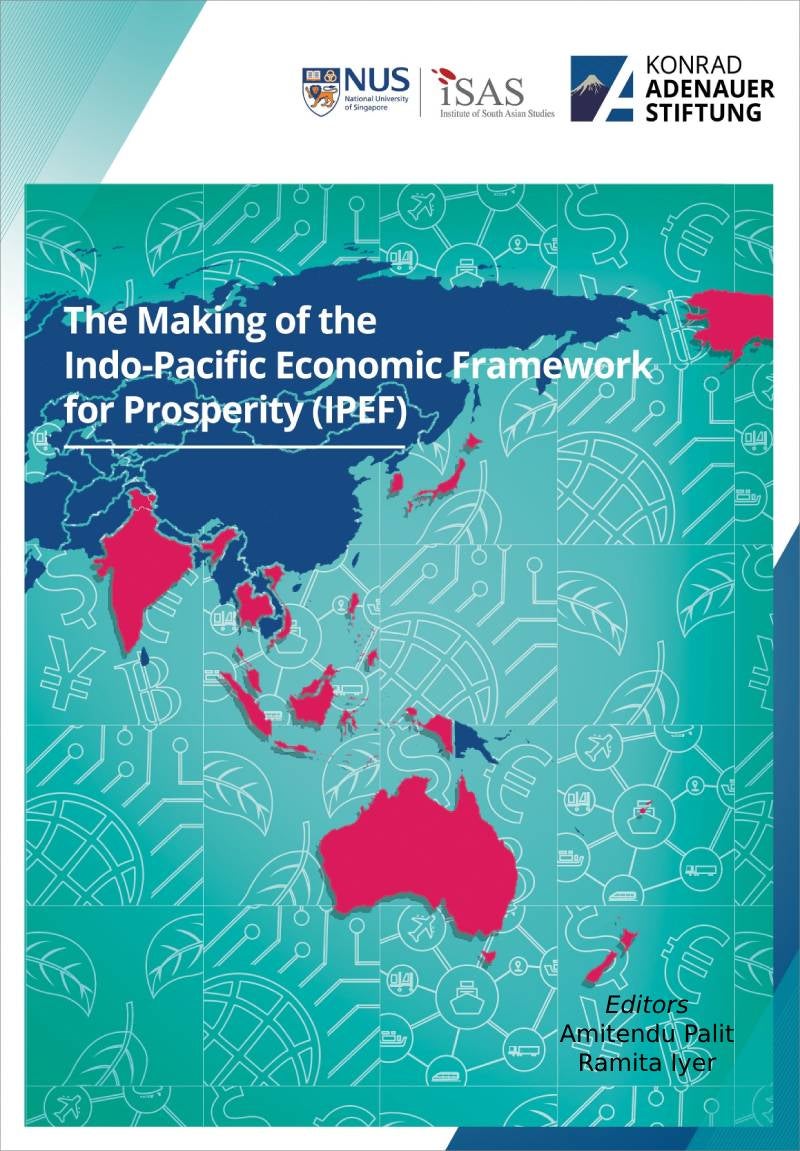The Making of the Indo-Pacific Economic Framework for Prosperity (IPEF) [Papers 7 to 9 of 16]
R V Anuradha (Paper 7), Jayant Menon (Paper 8), Kaewkamol Pitakdumrongkit (Paper 9), Cristita Perez (Project Lead), Amitendu Palit and Ramita Iyer (Editors)
22 September 2023ISAS partners with the Konrad-Adenauer-Stiftung Regional Economic Programme Asia to publish a variety of papers from renowned researchers over the next weeks. These papers offer unique perspectives from the different member countries on the challenges and opportunities offered by the Indo-Pacific Economic Framework for Prosperity (IPEF).
What is the IPEF?
On 23 May 2022, United States (US) President Joe Biden introduced the IPEF which aims to establish a rules-based trade and economic system in the Indo-Pacific region.
The IPEF brings together 14 nations, including Australia, Brunei, India, Indonesia, Japan, South Korea, Malaysia, New Zealand, the Philippines, Singapore, Thailand, the US, Vietnam and Fiji, to promote comprehensive trade and economic collaboration. This coalition represents almost two-fifths of the world’s economic output, making it the largest economic bloc in the world, bigger than both the Regional Comprehensive Economic Partnership and the Comprehensive and Progressive Trans-Pacific Partnership, two other significant trade blocs in the region.
The IPEF is built upon four pillars: Trade, Supply Chains, Clean Economy and Fair Economy. The pillars discuss regional rule-making on several subjects, including trade facilitation, digital economy, labour standards, environmental regulations, supply chain resilience, tax rules and anti-corruption practices.
Pillar 2 negotiations on supply chains have already concluded. Discussions on the other three pillars are proceeding fast.
Unlike other major free trade agreements, the IPEF prioritises flexibility in its operational strategy. Member states are free to choose the standards they would like to adopt based on their unique circumstances. While this approach offers benefits, it also raises concerns about the consistency of region-wide rules. Time will tell whether the IPEF’s commitment to adaptability is aligned with its overall objectives.
Stay tuned as we will be sharing the different countries’ perspectives on the IPEF over the next few weeks!
-
 More From :
More From :
-
 Tags :
Tags :
-
 Download PDF
Download PDF



